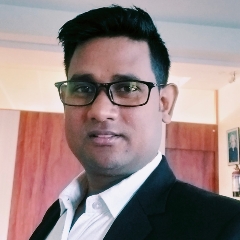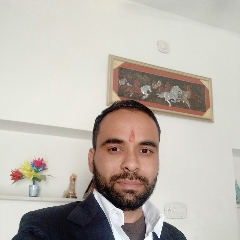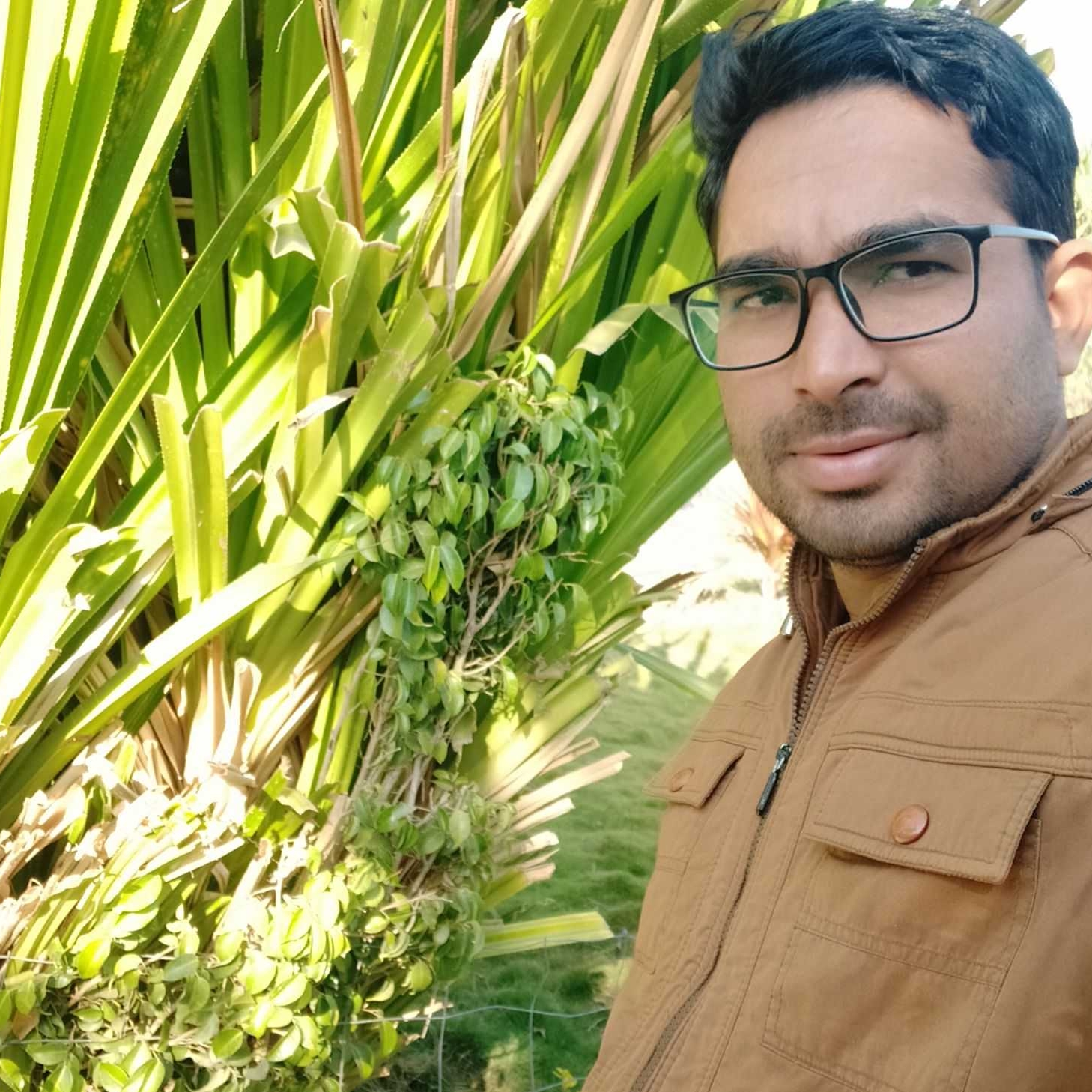Question 4 :
Fundamental theorem of arithmetic is also called as ______ Factorization Theorem.
Question 5 :
Find HCF of <span class="MathJax_Preview"></span><span class="MathJax"><span class="math"><span><span><span class="mrow"><span class="mn">25 and 55:</span></span><span></span></span></span><span></span></span><span class="MJX_Assistive_MathML">25 and </span></span>
Question 7 :
Let $x$ be an irrational number then what can be said about ${x}^{2}$
Question 13 :
The statement dividend $=$ divisor $\times$ quotient $+$ remainder is called 
Question 16 :
Euclids division lemma, the general equation can be represented as .......
Question 17 :
<span>$2\times 2\times 2\times 3\times 3\times 13 = 2^{3} \times 3^{2} \times 13$ is equal to</span>
Question 20 :
<span>Without actually performing the long division, state whether the following rational number will have a terminating decimal expansion or non -terminating decimal expansion</span><div><span>$\displaystyle \frac{7}{210}$</span></div>
Question 21 :
To get the terminating decimal expansion of a rational number $\dfrac{p}{q}$. if $q = 2^m 5^n$ then $m$ and $n$ must belong to .................
Question 27 :
The number of possible pairs of number, whose product is 5400 and the HCF is 30 is<br>
Question 28 :
Using fundamental theorem of Arithmetic find L.C.M. and H.C.F of $816$ and $170$.
Question 29 :
Let $x=\dfrac { p }{ q } $ be a rational number, such that the prime factorization of $q$ is of the form $2^n 5^m$, where $n, m$ are non-negative integers. Then $x$ has a decimal expansion which terminates.
Question 30 :
<span>Without actually performing the long division, state whether the following rational number will have a terminating decimal expansion or non -terminating decimal expansion</span><div><span>$\displaystyle \frac{15}{1600}$</span></div>
Question 31 :
The rational number which can be expressed as a terminating decimal is:
Question 33 :
Euclids division lemma can be used to find the $...........$ of any two positive integers and to show the common properties of numbers.
Question 34 :
The decimal representation of $\dfrac { 93 }{ 1500 }$ will be
Question 35 :
We need blocks to build a building. In the same way _______ are the basic blocks to form all natural numbers.
Question 36 :
According to Euclid's division algorithm, HCF of any two positive integers $a$ and $b$ with $a > b$ is obtained by applying Euclid's division lemma to $a$ and $b$ to find $q$ and $r$ such that $a = bq + r$, where $r$ must satisfy<br/>
Question 40 :
Without doing any actual division, find which of the following rational numbers have terminating decimal representation :<br>(i) $\displaystyle \dfrac{7}{16}$ (ii) $\displaystyle \dfrac{23}{125}$<br>(iii) $\displaystyle \dfrac{9}{14}$ (iv) $\displaystyle \dfrac{32}{45}$<br>(v) $\displaystyle \dfrac{43}{50}$ (vi) $\displaystyle \dfrac{17}{40}$<br>(vii) $\displaystyle \dfrac{61}{75}$ (viii) $\displaystyle \dfrac{123}{250}$
Question 42 :
For finding the greatest common divisor of two given integers. A method based on the division algorithm is used called ............
Question 43 :
The decimal expansion of the rational number $\displaystyle\frac{23}{2^{3}5^{2}}$, will terminate after how many places of decimal?
Question 45 :
If $d$ is the $HCF$ of 45 and 27, then $x, y$ satisfying $d=27x+45y$ are :
Question 47 :
............. states that for any two positive integers $a$ and $b$ we can find two whole numbers $q$ and $r$ such that $a = b \times q + r$ where $0 \leq r < b .$
Question 48 :
<span>Use Euclid's division lemma to find the HCF of $40$</span> and $248$.
Question 49 :
Euclid's division lemma states that for two positive integers a and b, there exist unique integers q and r such that $a = bq + r$, where r must satisfy<br>
Question 50 :
Decimal expansion of number $ \dfrac{441}{2^{2} \times 5^{7} \times 7^{2}} $ will be:
Question 51 :
If a rational number $ x = \dfrac{p}{q} $ such as a prime factor of $q$ is not the form of $2^{n}  5^{m}$ where $ n , m $ is a zero integer, then decimal expansion of $x$ is 
Question 53 :
When the HCF of $468$ and $222$ is written in the form of  $ 468 x + 222y$ then the value of $ x$ and $y$ is 
Question 54 :
Choose the correct alternative answer for the question given below.<br>Decimal expansion of which of the following is non-terminating recurring?
Question 55 :
<span>Use Euclid's division lemma to find the HCF : </span><div>65 and 495.</div>
Question 56 :
 The square of any positive odd integer <span>for some integer $ m$ </span>is of the form <br/>
Question 57 :
If HCF of numbers $408$ and $1032$ can be expressed in the form of $1032x -408 \times 5$, then find the value of $x$.
Question 60 :
The LCM of 54 90 and a third number is 1890 and their HCF is 18 The third number is
Question 61 :
 One and only one out of  $n, n + 4, n + 8, n + 12\  and \ n + 16 $ is ......(where n is any positive integer)<br/>
Question 62 :
The decimal expansion of the rational number $\dfrac {33}{2^2\cdot 5}$ will terminate after:<br/>
Question 63 :
<span>A rectangular veranda is of dimension $18$ m $72$ cm $\times 13$ m $20$ cm. Square tiles of the same dimensions are used to cover it. Find the least number of such tiles.</span>
Question 64 :
In the decimal expansion of rational number $ \dfrac{43}{{2}^{2} \times {5}^{3}} $, after how many digits decimal will end ?
Question 68 :
The given pair of numbers $ 231, 396$ are __________ .<br/>
Question 69 :
Mark the correct alternative of the following.<br>The HCF of $100$ and $101$ is _________.<br>
Question 70 :
The product of a non-zero rational and an irrational number is<br>
Question 71 :
If any positive even integer is of the form $4q$ or $4q + 2$, then $q$ belongs to:<br/>
Question 72 :
If $\displaystyle d=\frac { 1 }{ { 2 }^{ 3 }\times { 5 }^{ 7 } } $ is expressed as a terminating decimal, <span>how many non zero digits will $d$ have?<br/></span>
Question 75 :
Using the theory that any positive odd integers are of the form $4 q + 1$ or $4 q + 3$ where $q$ is a positive integer, If the quotient is $4$, the dividend is $19$ then what will be the remainder?
Question 76 :
If the square of an odd positive integer can be of the form $6q + 1 $ or  $6q + 3$ for some $ q$ then q belongs to:<br/>
Question 78 :
<span>Without actually performing the long division, state whether the following rational numbers will have a terminating decimal expansion or a non-terminating repeating decimal expansion.</span><br/>$\dfrac {29}{343}$<br/>
Question 79 :
A real number $\displaystyle \frac{2^2 \times 3^2 \times 7^2}{2^5 \times 5^3 \times 3^2 \times 7}$ will have _________.
Question 82 :
If HCF of $210$ and $55$ is of the form $(210) (5) + 55 y$, then the value of $y$ is :<br/>
Question 86 :
Without actually performing the long division, state whether the following rational number will have terminating decimal expansion or a non-terminating repeating decimal expansion. Also, find the numbers of places of decimals after which the decimal expansion terminates.<br/>$\dfrac { 13 }{ 3125 } $


























